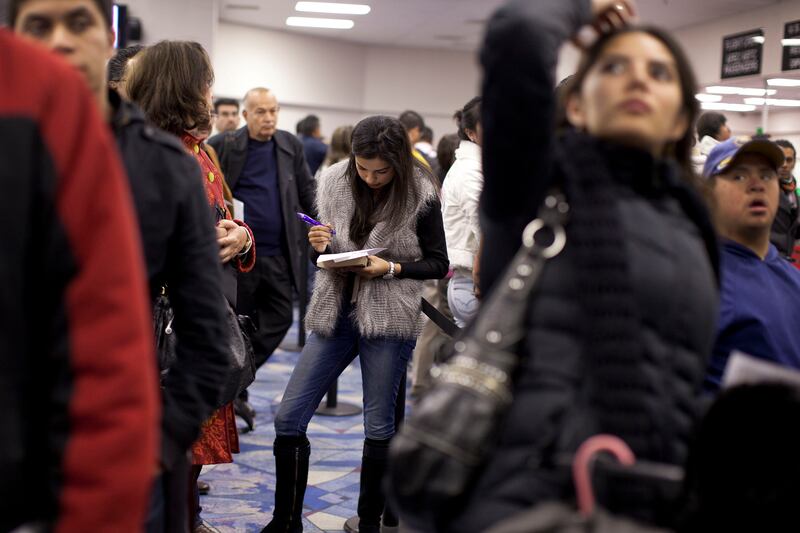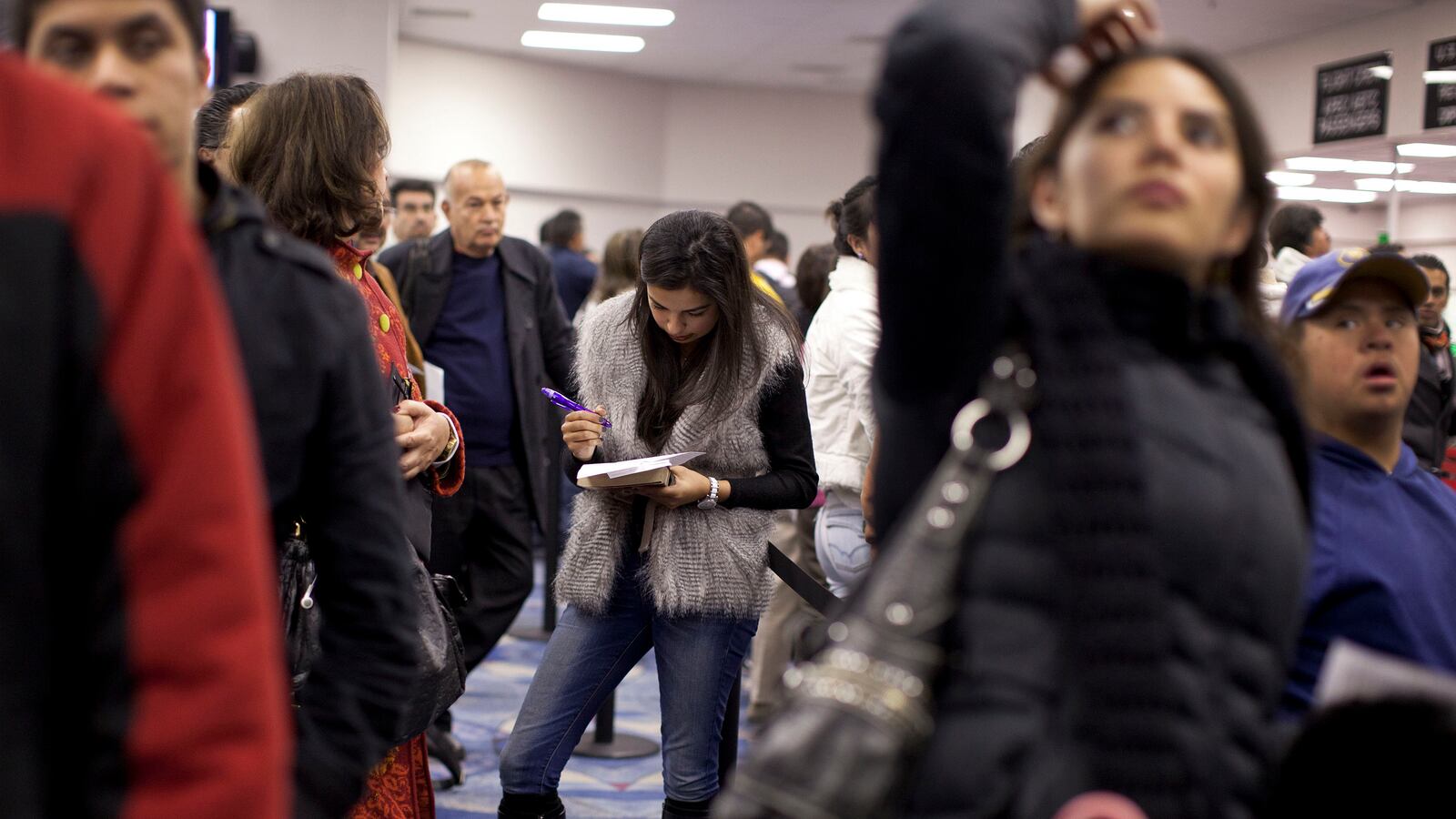The immigration compromise is calling for a big investment to hire 20,000 new border guards—that’s a lot of money to keep people out of the country. But if you ask me, what we really should be doing is creating 20,000 jobs that would help get people into the country.
If you’ve traveled home from an overseas trip recently, you’ll know what I mean.

I went on a brief business trip to Quebec City, Canada, last week. Walked right through into Canada, waited about a minute before gaining admittance. (Between the French language and the stamping of the passports, it’s almost like Canada is a foreign country.) Coming home was a different story.
I landed at Newark, on a Friday at about 3:00 p.m., and was eager to get home to Connecticut. Late Friday afternoon is no time to be negotiating your way through the tristate metro area, by car or train. So I jogged through the long concourses and hustled into the customs zone. And then. Nothing. Oh, there were people there—three employees directing traffic, two supervisors sitting behind a desk. But there was only a single line open for a rapidly expanding line of about 300 people. And this was the line for citizens. Foreigners were left standing on an even longer, slower line. A second lane soon opened, and it took about 45 minutes to get through. A cursory conversation, a stamp, and I was in.
Apparently, I was among the fortunate ones. The Wall Street Journal earlier this month had an excellent article on the absurd situation at airports:
“Officials are warning of extreme delays gaining entry to the U.S. this summer after nightmare delays of three hours or longer at U.S. Customs and Border Protection (CBP) checkpoints this spring, in what are usually slower travel months. Over the past year, the wait to enter the country at airports—which was already often a slog, especially for non-U.S. citizens—has increased dramatically ...
“... At Terminal 4 at JFK, the drop-off depot for 31 airlines, the longest wait in May was 177 minutes in the 3 p.m. to 4 p.m. hour, up from 113 minutes in May 2012. The Delta terminal at JFK saw the average number of lanes open fall dramatically to 12 from 19 in May at the 3 p.m. to 4 p.m. peak hour. The longest wait last month there, 123 minutes, was up 151% from that of May 2012, according to the CBP.”
This is madness. And it is mostly Congress’s fault. The infrastructure for processing people more efficiently is there—there were dozens of unused lanes at Newark, and at every other U.S. international airport I’ve been at.
Simply put, the volume of people is rising. In 2012, a record 66.97 million foreigners visited the U.S., up 6.8 percent from 2011, and up 20 percent from 2009. But Congress, according to the Journal, isn’t authorizing higher levels of staffing. And the sequester isn’t helping matters.
Even more absurd, unlike many other agencies, the CBP is funded to a large degree by users. As the Journal notes, “every airline ticket inbound from abroad includes $17.50 in fees for CBP.”
Of course, poor management of existing human resources plays a role. We were told the lines were so long in part because we had arrived at a time during which shifts were changing. (Hint: change the shifts at a different time!). And it seems that a simple app that coordinates air-traffic data and CBP management could give the agency a good sense of how many people will be coming through the line at any given time of the day. Oh, and throughout this whole period, a lane that was staffed and reserved for crew use processed only four flight attendants.
It struck me that there might be some method behind this madness. My hands were clenched in fists of rage as people coasted through the kiosk for Global Entry, the government-run program in which people pay annual fees, go for background checks, and then are able to breeze through customs. Make the free version experience miserable, and people might go for premium.
Am I just griping about yet another 1 percent problem? Well, maybe. Only a small minority of Americans leave the country each year. An even smaller minority goes and returns so frequently that these lines can be an irritant.
But there are big economic consequences here. Sit back and think about how much an hour of your time is worth to you—or to your employer. It could be $10, $20, $50, or $200. Every time you wait needlessly on line—whether it’s to pay a toll on a bridge or to enter the country—money is wasted.
What’s more, in case you hadn’t noticed, there’s an unemployment crisis in this country. If CBP were to hire and train a few more thousand officers to staff customs stations, it would make the system function better while putting people back to work.
Finally, and most importantly, tourism is a gigantic, huge, important growth industry that provides jobs to millions of Americans in every state and at every rung of the income ladder. We should be doing everything in our power to make it easy for people to get in and out of this country—especially tourists. Whenever somebody comes to visit, that’s an export.
There are about 7 billion people living outside the U.S. And when they make money they want to come visit and see what is going on here. The overwhelming majority of them go home soon enough. We are setting new records every year in the number of visitors. And in 2012, international tourists accounted for $168 billion in spending. That’s about 1 percent of GDP. The U.S. last year had a $50 billion trade surplus in tourism.
So they’re coming. But everyone in the hospitality business knows that if you make a first visit unpleasant, the visitor may not return. The lines are unpleasant and wasteful. They may cause people to miss connections or arrive late for events. It’s shocking to me that the huge companies that depend on tourism—Fortune 500 firms like Disney, Carnival, Hilton, Delta Airlines, all of Las Vegas—aren’t in Washington complaining about these delays every day. The government is putting a huge, unnecessary roadblock in front of paying customers.





